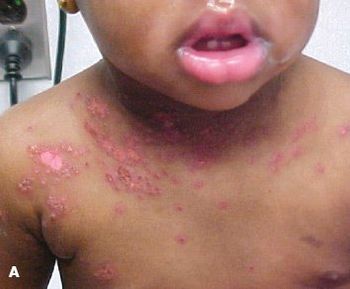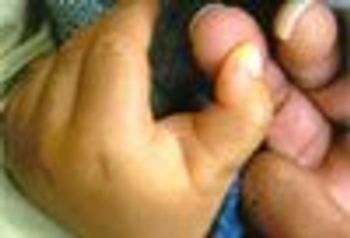
One week earlier, a 14-month-old girl with a history of eczema was evaluated because of a diffuse rash of excoriated lesions, some of them purulent. She was afebrile. Worsening eczema with secondary infection was diagnosed. Treatment with oral clindamycin was prescribed. At follow-up, the lesions had worsened. The child had multiple excoriated papules, some of which had coalesced into plaques. She also had two 5-mm vesicles on her right shoulder. Eczema herpeticum was diagnosed clinically. Culture of the vesicles later grew herpes simplex virus (HSV).

